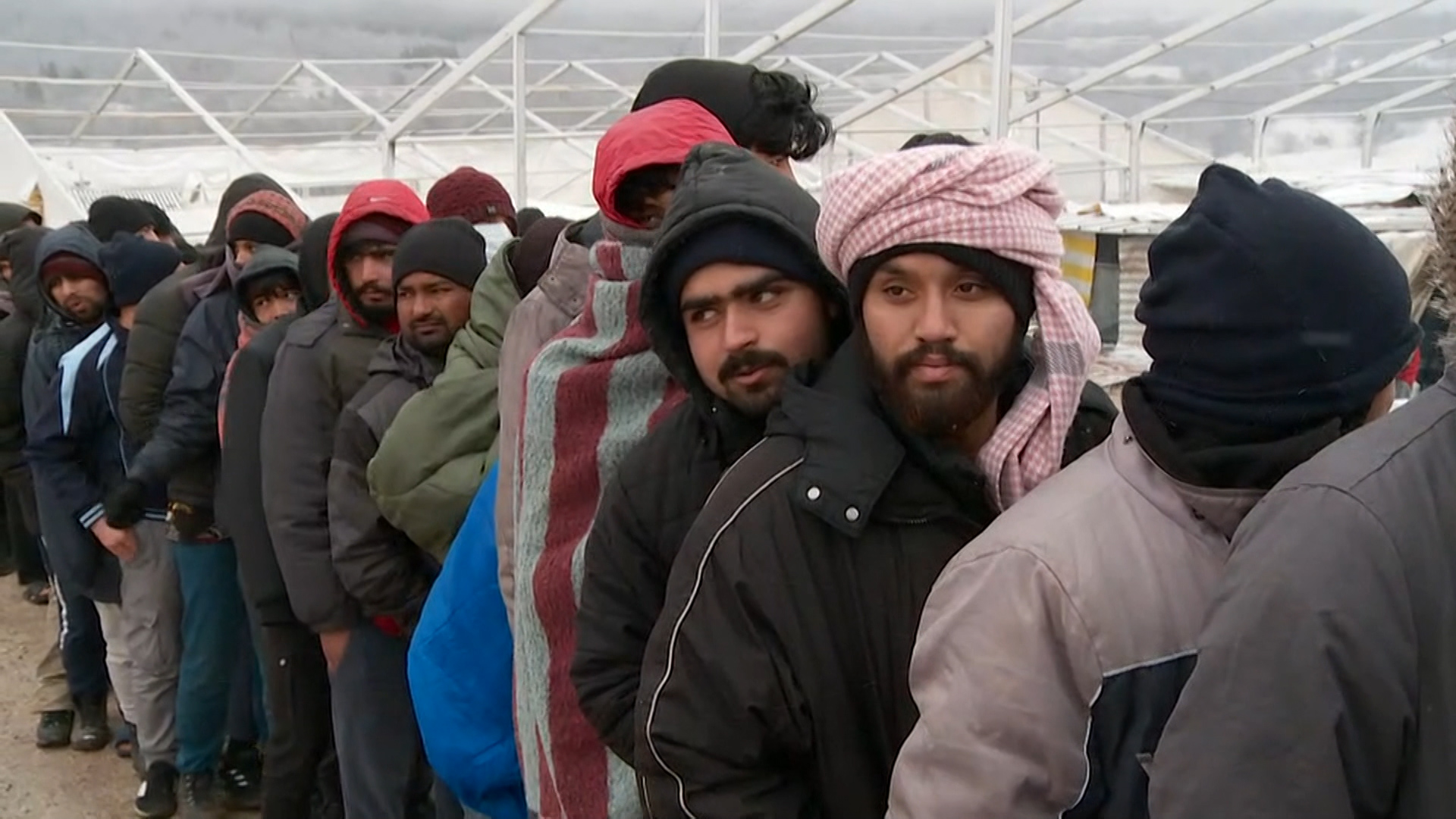
The migrants who are subject of deportation orders can still be found on the streets of Bosnia and Herzegovina, specifically the Una-Sana Canton and Canton Sarajevo, spokespersons for interior ministries in the two administrative units told N1, stressing that the problem requires a systemic solution.
The spokesmen called the situation “absurd” and warned about various criminal acts in these two cantons that involve migrants.
“We can see a big number of people in need, but there are individuals among them prone to committing of crimes,” said Sarajevo Canton Interior Ministry spokesperson, Mirza Hadziabdic.
Two migrant centres near the Bosnian capital, Usivak and Blazuj, are filled to capacities, according to Hadziabdic, who said there are nearly 4,000 migrants in those camps.
“Some of them are in the open, some in private or illegal accommodation. It led the Sarajevo Canton Interior Ministry Police Administration and the Service for Foreigners' Affairs to conduct a series of operations to find the migrants staying illegally at various places,” he stressed.
Of eleven criminal acts of murder, four involved migrants as perpetrators, said Hadziabdic, recalling that three of four victims were migrants themselves.
“We managed to find those persons, we're still searching for one more. The crimes were resolved and documented. We're waiting for two of them to be extradited. The police manage to identify and find those persons even under such complex circumstances,” he added.
As for Una-Sana Canton, the northwestern region which has recorded the largest number of illegal migrants on its territory, its police reported some 3,000 various interventions and incidents with the migrants as perpetrators or suspects.
“We are deploying the officers but this situation has been ongoing for three years and it is culminating. We don't see it being solved in the near future,” said Ale Siljdedic, Una-Sana Canton Interior Ministry spokesperson.
He warned that most of the migrants who enter Bosnia through its eastern border “are illegally moving around without any documents, committing certain crimes, and ending up on the USC territory.”
“They were coming in an organised way on buses, everyone cleaned up their front yards and shifted the problem onto another canton, and it was all ending up either in Bihac or Velika Kladusa (two towns in Una-Sana Canton),” underlined Siljdedic.
Both cantons lack the police officers while the challenges the police are facing are accumulating, the spokesmen said. One of those challenges is the threat of those migrants who are subject of deportation orders but who can still be seen on the territory of these two cantons.
“We see them in the camps,” Siljdedic said, calling the situation “absurd.”
“How come Serbia and Croatia don't have those problems? But Bosnia and Herzegovina does. The problem exists, it exists only in two cantons,” he stressed, adding that the problem requires a systemic solution.
Hadziabdic noted that this also requires cooperation with the state-level bodies.
“But the cooperation must include a final outcome. And that means that the person who needs to be expelled must undergo the procedure completely,” he underlined.
Kakvo je tvoje mišljenje o ovome?
Učestvuj u diskusiji ili pročitaj komentare





 Srbija
Srbija
 Hrvatska
Hrvatska
 Slovenija
Slovenija







